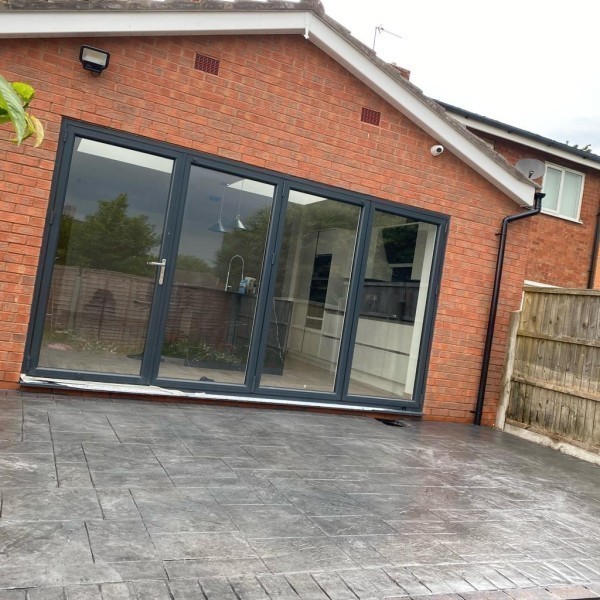Loft Conversions in Halesowen
Manorwood Building Services Ltd is your go-to solution for all building and construction needs in Solihullread more »
Welcome to Jade Housing Services Ltd, your premier choice for comprehensive tradespeople services in Birmingham and the wider West Midlan... read more »
KBF Osborn Services: Your Trusted Tradespeople in Selly Oak and the West Midlands
Welcome to KBF Osborn Services... read more »
Welcome to Kalyssia Properties, your premier choice for top-notch building and renovation services in Four Oaks and the wider West Midlan... read more »
Welcome to Oakwood Carpentry and Building Ltd, your trusted builders in Knowle, offering a comprehensive range... read more »
EGECO House Development LTD: Premier Tradespeople in Chad Valley, West Midlands
Welcome to EGECO House Development... read more »
Welcome to Mitsu Construction Company Ltd, your premier choice for expert building services in Friar Park and the West Midlands... read more »
Staffordshire Construction Ltd is a premier construction company based in Dudley, offering top-notch building services a... read more »
Welcome to BM Builder, your go-to experts for all your building needs in the vibrant city of Birmingham and throughout the West Midlands.... read more »
Welcome to Premier Estates Home Improvements, your go-to experts in Ettingshall for all your building and landscaping needs. As a leading... read more »
Welcome to K F Builders Ltd, your trusted partner for all building needs in Stambermill and the wider West Midlands area. As a leading na... read more »
Welcome to CPL Building Services, your trusted partner for all construction needs in Golds Green and the wider West Midlands area. With o... read more »
M.sidhu Constructions Ltd is a premier construction company based in the vibrant area of Soho, offering a comprehensive... read more »
Welcome to Best Homes Builder Ltd., your premier choice for top-notch building services in Balls Hill and the wider West Midlands area. A... read more »
EVERBEST Home Builders is your go-to solution for all building and renovation n... read more »
Elegas Plus Ltd, located in the heart of Acock's Green, is your go-to solution for all your home improvement needs acros... read more »
Gabson Construction, based in the bustling city of Wolverhampton, is your premier choice for top-quality construction se... read more »
Welcome to K & T Construction (Midlands) Ltd, your premier choice for Builders, Extension Builders, Property Maintenance, Kitchen Install... read more »
NK Midlands LTD is a distinguished tradespeople business located in the heart of Black Lake, proudly serving the West Mi... read more »
TMS Projects Ltd is a reputable Stone-based business, proudly serving the Worcestershire area with a wide range of exper... read more »
Search Loft Conversions in places nearby
Understanding Loft Conversions in Halesowen
Loft conversions in Halesowen have become increasingly popular as homeowners seek to maximise their living space without the hassle of moving. With the charm of Halesowen's traditional homes, converting a loft can add both value and functionality to your property. This article will guide you through the ins and outs of loft conversions, ensuring you have all the information needed to embark on this exciting home improvement journey.
The Benefits of Loft Conversions
Loft conversions offer a plethora of benefits, making them a worthwhile investment for many homeowners. Firstly, they provide additional living space, which can be used for a variety of purposes such as an extra bedroom, home office, or playroom. This is particularly advantageous in Halesowen, where space can be at a premium.
Moreover, a well-executed loft conversion can significantly increase the value of your home. According to property experts, a loft conversion can add up to 20% to the value of a property, making it a smart financial move. Additionally, loft conversions are generally less disruptive and more cost-effective than building an extension, as they utilise existing space.
Types of Loft Conversions
There are several types of loft conversions to consider, each with its own set of advantages. The most common types include:
- Velux Loft Conversion: This is the simplest and most cost-effective type, involving the installation of Velux windows to allow natural light into the loft space.
- Dormer Loft Conversion: This involves extending the roof to create additional headroom and floor space. Dormer conversions are versatile and can be adapted to suit various property styles.
- Hip to Gable Loft Conversion: Ideal for semi-detached or detached homes, this conversion involves straightening an inwardly slanted end roof to create a vertical wall, thus increasing space.
- Mansard Loft Conversion: This is the most extensive type, involving altering the roof structure to create a flat roof with a back wall sloping inwards. It offers maximum space but is more complex and costly.
Planning Permission and Building Regulations
Before embarking on a loft conversion in Halesowen, it's crucial to understand the planning permission and building regulations involved. Generally, loft conversions fall under permitted development rights, meaning you may not need planning permission. However, there are exceptions, especially if your property is in a conservation area or is a listed building.
Building regulations approval is mandatory for all loft conversions to ensure the safety and structural integrity of the conversion. This includes aspects such as fire safety, insulation, and structural stability. It's advisable to consult with a professional architect or builder to navigate these requirements effectively.
Choosing the Right Loft Conversion Specialist
Selecting the right specialist is key to a successful loft conversion. Look for a company with a solid reputation and extensive experience in loft conversions in Halesowen. It's beneficial to review their portfolio and seek testimonials from previous clients to gauge their reliability and quality of work.
Additionally, ensure the specialist is fully insured and accredited by relevant industry bodies. This not only provides peace of mind but also guarantees that the work will be carried out to a high standard.
Cost Considerations for Loft Conversions
The cost of a loft conversion can vary significantly depending on the type and complexity of the project. On average, a basic Velux conversion might cost around £20,000, while a more extensive Mansard conversion could exceed £50,000. It's essential to obtain detailed quotes from several specialists to compare prices and services offered.
Remember to factor in additional costs such as planning fees, building regulations approval, and any unforeseen expenses that may arise during the project. Budgeting for these will help avoid any financial surprises down the line.
Designing Your Loft Space
Designing your loft space is an exciting part of the conversion process. Consider the purpose of the space and how it will fit into your lifestyle. For instance, if you're creating a bedroom, think about storage solutions, lighting, and ventilation.
Incorporating skylights or dormer windows can enhance natural light, making the space feel larger and more inviting. Additionally, choosing a neutral colour palette can create a sense of openness and tranquillity.
Maximising Energy Efficiency
Energy efficiency is an important consideration for any loft conversion. Proper insulation is crucial to prevent heat loss and reduce energy bills. Consider using eco-friendly insulation materials and double-glazed windows to enhance thermal efficiency.
Moreover, installing energy-efficient lighting and heating systems can further reduce your carbon footprint and contribute to a more sustainable home.
Addressing Common Challenges
While loft conversions offer numerous benefits, they can also present certain challenges. One common issue is limited headroom, which can be addressed by choosing the right type of conversion or adjusting the roof structure.
Another challenge is ensuring adequate access to the loft. This may involve installing a staircase, which can impact the layout of the existing space. Consulting with a professional can help overcome these challenges and ensure a smooth conversion process.
Legal and Safety Considerations
Ensuring the safety and legality of your loft conversion is paramount. This involves adhering to building regulations and obtaining any necessary permissions. Fire safety is a critical aspect, requiring the installation of smoke alarms and fire-resistant materials.
Additionally, it's important to consider the impact of the conversion on your neighbours, particularly if your property is semi-detached or terraced. Maintaining open communication and addressing any concerns can help prevent disputes.
Timeline for Loft Conversions
The timeline for a loft conversion can vary depending on the complexity of the project. On average, a straightforward conversion might take 4-6 weeks, while more extensive projects could take several months.
It's important to plan accordingly and communicate with your specialist to ensure the project stays on schedule. Regular updates and site visits can help monitor progress and address any issues promptly.
Financing Your Loft Conversion
Financing a loft conversion can be a significant undertaking, but there are several options available. Many homeowners choose to use savings or take out a home improvement loan. Alternatively, remortgaging your property can provide the necessary funds.
It's advisable to consult with a financial advisor to explore the best financing options for your situation. Additionally, consider the potential increase in property value as a return on investment when evaluating costs.
Environmental Impact of Loft Conversions
Loft conversions can have a positive environmental impact by reducing the need for new construction and utilising existing space. By incorporating sustainable materials and energy-efficient systems, you can further minimise your carbon footprint.
Consider using reclaimed materials and low-VOC paints to create a healthier indoor environment. Additionally, installing solar panels or rainwater harvesting systems can enhance the sustainability of your home.
Future-Proofing Your Loft Conversion
Future-proofing your loft conversion involves designing a space that can adapt to your changing needs. Consider flexible layouts and multifunctional furniture to maximise usability.
Additionally, incorporating smart home technology can enhance convenience and efficiency. From automated lighting to climate control, these features can make your loft space more comfortable and adaptable.
Frequently Asked Questions
- Do I need planning permission for a loft conversion in Halesowen? Generally, loft conversions fall under permitted development rights, but it's best to check with your local council.
- How much does a loft conversion cost? Costs can vary, but expect to pay between £20,000 and £50,000 depending on the type and complexity.
- How long does a loft conversion take? A typical conversion takes 4-6 weeks, but more complex projects may take longer.
- Can I convert my loft if I have limited headroom? Yes, certain types of conversions, like dormer or mansard, can increase headroom.
- Will a loft conversion add value to my home? Yes, it can add up to 20% to the value of your property.
- What are the building regulations for loft conversions? Regulations cover aspects like fire safety, insulation, and structural stability. Consult with a professional for guidance.
Loft conversions in Halesowen offer a fantastic opportunity to enhance your living space and add value to your home. By understanding the process, choosing the right specialist, and considering all aspects from design to financing, you can ensure a successful and rewarding project. Embrace the potential of your loft and transform it into a functional and beautiful part of your home.
Send a message


























